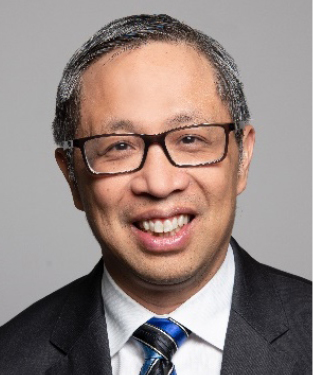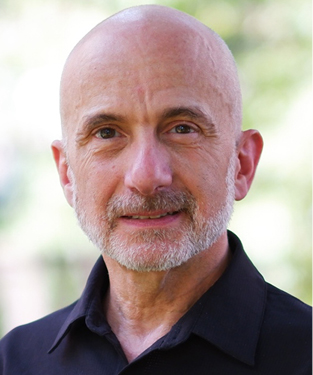
- Sunday, October 5
- 8 AM - 5 PM
- Georgia Tech Scheller College of Business
Plan now to attend the popular Director’s Program at the 2025 EMBAC Conference! For academic members at the director’s level and above, the Director’s Program offers participants valuable networking time and insights from presenters on relevant topics.

To risk, or not to risk?
This age-old question becomes even more challenging to answer during rapidly changing times. Do you venture forward with bold ideas and risk failure, or do you play it safe and risk the same outcome?
Calculated risk may help you balance the pros and cons of risking too much or not risking enough. The simple, but powerful principle of calculated risk involves choosing the action or option that gives you the best expectation of greater gain than loss. Higher education leaders, though, often struggle with this principle and tend to focus more on avoiding loss rather than seizing an opportunity for gain. Disruption aggravates this tendency.
During times of disruption, then, when calculated risk taking should be at a premium, the opposite more often occurs with higher education leaders choosing to double down on avoiding loss in such a way as to distort strategic decision making.
Help avoid staying in one place when the risk of change offers greater benefits. In this Director’s Program session, EMBA leaders will learn more about the practice of calculated risk in times of disruption.
Calculated risk taking is both an art and a science. As a science, it involves a rigorous method of assessment, revision, decision making, and action. As an art, it forces leaders to confront mindsets – their own as well as those of others – as well as to reorient intuition and to engage with stakeholders in perhaps unfamiliar ways. The session will help answer the following four questions:
- What are the concepts of “calculated risk” and “disruption,” and how do they apply specifically within an EMBA context?
- Why are you as an EMBA leader not already practicing calculated risk taking? What might be getting in the way for both you and your key stakeholders to be calculated risk takers?
- What is the method of calculated risk taking? What are its core elements, and how can you put these elements into practice?
- Once you are ready to practice calculated risk taking, how might you be able to get other key stakeholders to say “yes” to your calculated risk opportunity?
Addressing these questions will help build a model for practicing the art and science of calculated risk, enabling EMBA leaders to contend effectively and confidently with whatever disruption they may face.
About the speaker
Elmer Almachar began his career by joining the world-renowned consulting firm of McKinsey & Company where he eventually led McKinsey’s U.S. Design Center team. In 2011, he joined the Kellogg School of Management as director of its EMBA Program, and in 2016 expanded his role to lead strategy and innovation initiatives for working professionals. In 2022, he was promoted to serve as senior director for Strategy, Change, and Insights with organization-wide responsibilities for strategic planning and implementation, data analytics and insights, and change management. In early 2024, he returned to the EMBA Program as managing director.
Almachar’s passion is connecting ideas and people to discover new ways of seeing and doing things, and in fostering the courage to take action. With an eagerness to teach and learn from others, he has taught several different sessions both for Kellogg and EMBAC including stakeholder and change management, customer journey insights, and effective strategic decision making. Elected to the EMBAC Board of Trustees in 2014, he served as board chair in 2016. He has provided a unique voice in enhancing EMBAC’s research initiatives and received the 2020 EMBAC Bud Fackler Service Award for his contributions to EMBAC and the industry.
Academics has always been important to Almachar. He completed his bachelor’s degree with a focus on government and religion and then received his master’s degree in religious studies from the University of Chicago Divinity School. While at McKinsey, he returned to school again for his MBA from Kellogg.

EMBA Programs are operating in a new reality—one shaped by rapidly advancing generative artificial intelligence (GenAI) tools, evolving business expectations, and digital fluency as a given. This session invites EMBAC leaders to explore how programs can adapt and lead in this era of abundant intelligence.
Led by a former 3M CMO and current adjunct faculty member at the University of Minnesota’s Carlson School of Management and Indiana University’s Kelley School of Business, the session blends strategic foresight with hands-on immersion. You’ll examine where business is heading, hear leadership insights via AI-generated avatars, and explore real-time applications of GenAI across key MBA domains. Participants will build their own CustomGPT on the spot, drawing from their program’s unique value proposition.
The session closes with a working section using AI-assisted clustering to identify and prioritize key next steps. You'll leave with practical tools, peer-driven insights, and a clear sense of how to move your program forward with confidence.
About the speaker
Paul Acito brings four decades of proven leadership experience driving growth and innovation across Fortune 500 technology, healthcare, and industrial companies on three continents. His executive career spans two major publicly traded corporations: 3M Company and Medtronic, both headquartered in Minneapolis-St. Paul.
Currently as CEO of Lyftbridge Innovation, Acito applies his corporate experience to the entrepreneurial ecosystem while maintaining active involvement in the Twin Cities startup community. As an adjunct faculty member at three leading business schools—the University of Minnesota's Carlson School of Management, St. Catherine's University, and Indiana University's Kelley School of Business, he also teaches executive education courses in leadership, operations, marketing, strategy, and his signature AI Applications in Marketing program.
At 3M Company, Acito served as president of several multibillion-dollar business divisions, including Personal Safety, Traffic Safety, Aerospace, and Infrastructure Protection. As the company's Global Chief Marketing Officer, he oversaw marketing strategy and execution across 3M's diversified portfolio. His international experience includes more a decade in senior leadership positions across Europe (Brussels), Asia-Pacific (Bangkok), and Japan (Tokyo). He also led commercial strategy for one of the world's largest medical device portfolios in the diabetes management space as marketing chief for the Diabetes Business Group at Medtronic.
A certified Lean Six Sigma Master Black Belt, Acito holds 10 issued patents. His technical background combined with commercial acumen have enabled him to lead complex, technology-intensive businesses across multiple industries and geographies.
He also serves on the Indiana University Kelley School of Business Global Dean's Council and has been a long-term board member and past chair of the Penumbra Theatre and Center for Racial Healing, demonstrating his commitment to corporate social responsibility and community engagement. He received his MBA from Indiana University’s Kelley School of Business and his bachelor of science from Rochester Institute of Technology.
The Director’s Program will include plenty of time for networking and sharing with your fellow directors, those you know and those you will meet for the first time.

